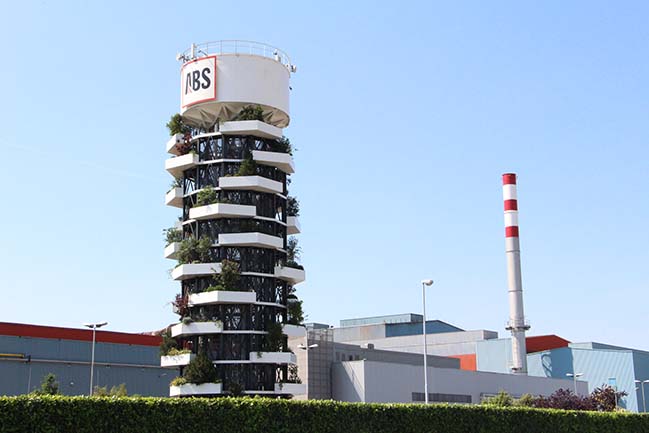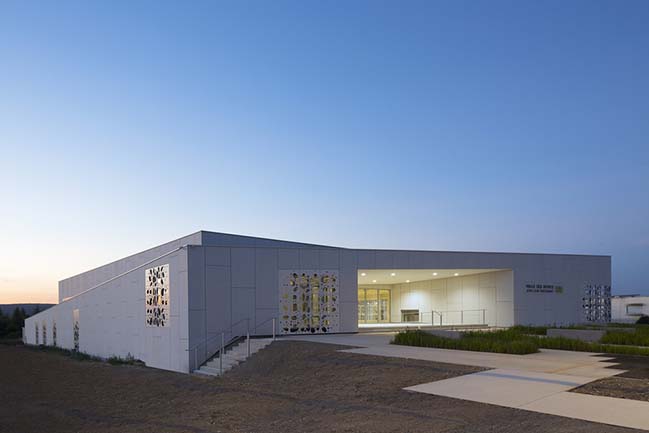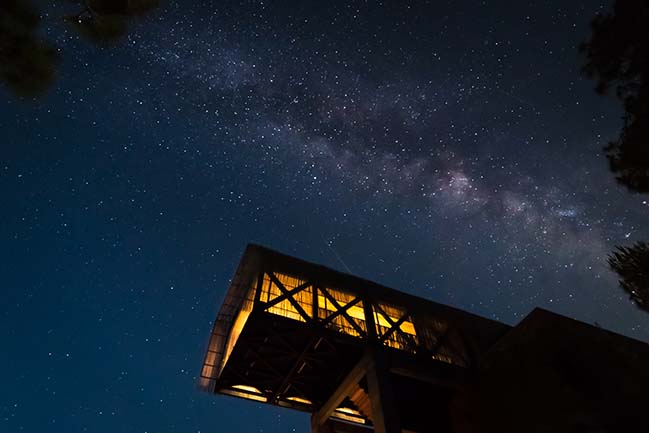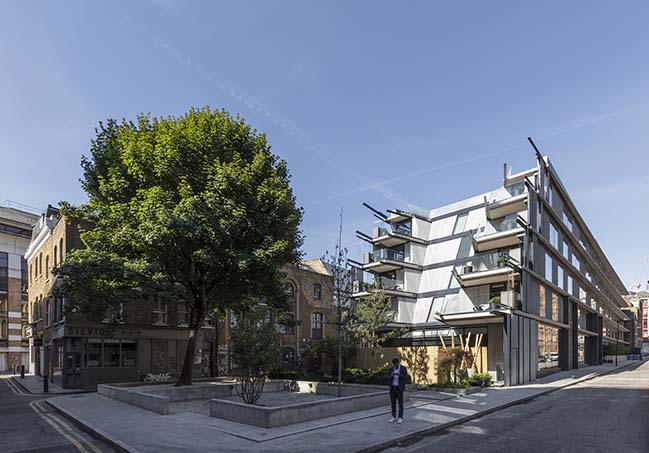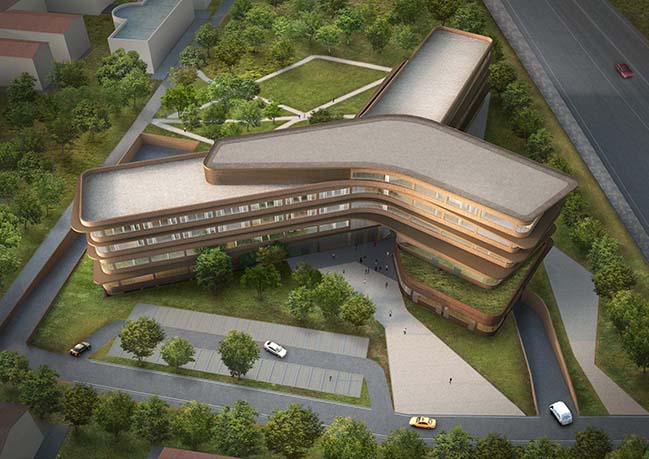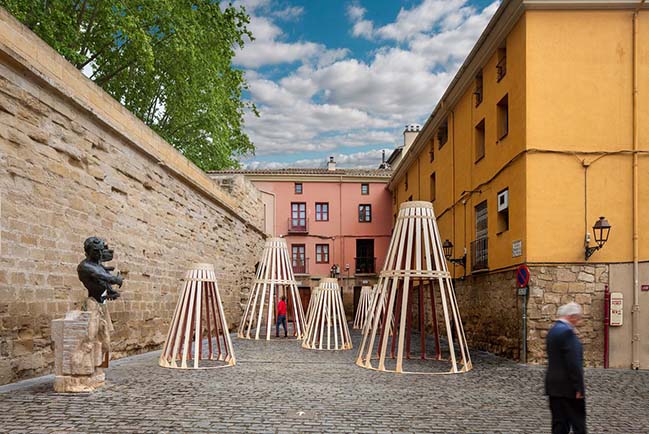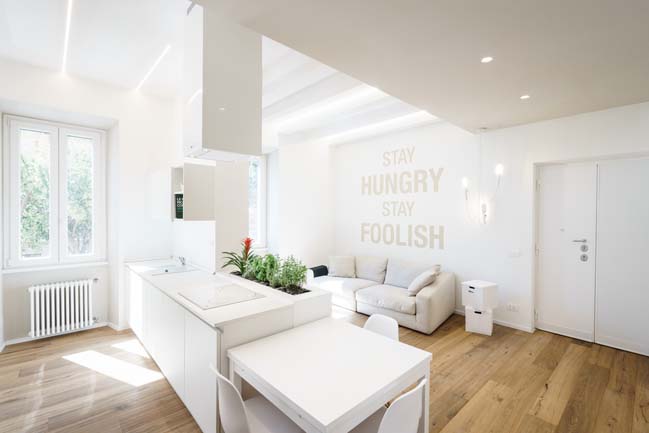12 / 29
2017
Inspired by the formation of a desert oasis and a voronoi pattern as found in natural systems, the proposal seeks to integrate contextual environmental data into a synthesis of forms, skins, and public spaces.
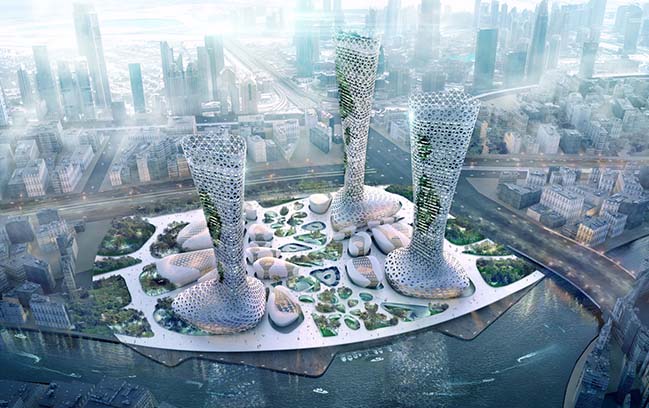
Architect: AmorphouStudio
Location: Jumeirah Gardens, Dubai, UAE
Year: 2017
Team: Zayad Motlib, Marta Krivosheek, Raghad Al-Ali, Laila Najib
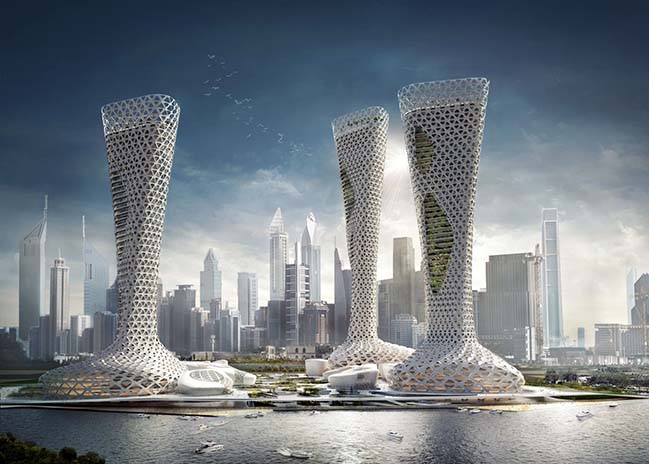
From the architect: The development consists of a residential, a hotel, and an office tower, connected on the ground level by a double-deck pedestrian shopping plaza. The connecting plaza creates two environments that can be used throughout the different seasons. The first environment, the lower deck, is a lavish green semi-shaded oasis level that is packed with trees and water to provide gathering zones for people during the hot summer season. It is located on the natural landscape level to be accessible for pedestrians from all sides. The second environment is a stretched voronoi perforated deck that ramps up from both ends of the site to form an elevated upper plaza that is simultaneously connected with the lower level oasis via many ramps. This plaza is partially shaded by trees extending through the voronoi openings. Also, photovoltaic umbrellas have been placed on tree-like structure in some of these openings. They collect the sun energy and convert it into power to feed the cross-ventilation system of the oasis level. This treatment, along with the shading provided by the upper deck level and the dense plantation, create a micro-climatic habitable environment that can be used during the hottest seasons in Dubai.
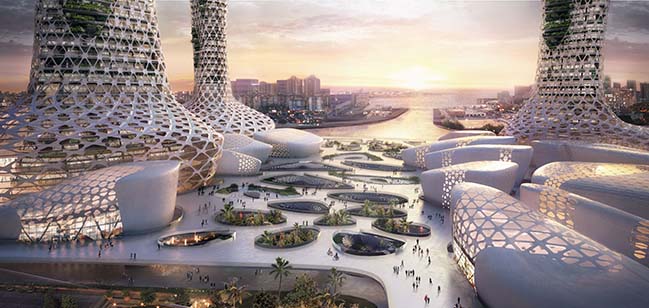
Towers' geometry and skins were developed in response to Dubai climatic conditions. Radiation data of the hottest seasons in Dubai (May-October) were mapped on the geometry and used to shape the form and orientation of each tower. Towers geometry taper and twist so as to reduce the surface area that is exposed to high radiation. These data were also re-mapped to generate gradient balconies depth and skin openings to minimize sun exposure and to provide a comfortable shaded environment inside.
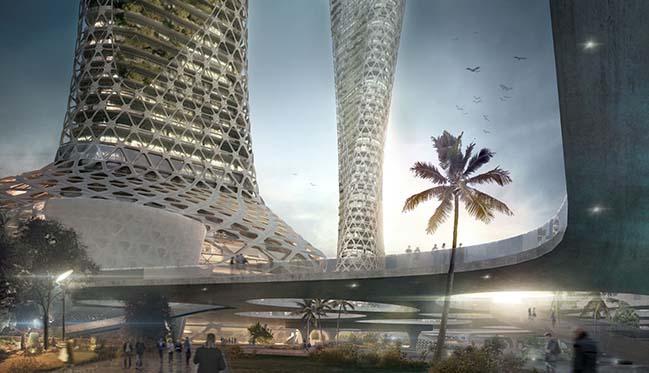
Internally, the lobby space of these towers soars up; creating a transparent atrium void that unites the floors, while allowing pattern of sunlight inside. This treatment creates a dramatic effect as it blends the shadow of the pattern of the external skin with the interior pattern of the lobby and the rooms inside.

Incorporating contextual environmental data to inform forms, plaza, and skin generation was a key aspect of this development. This design approach aims to reduce the reliance on the prevailing air-conditioning system, while creating a symbiosis between the architecture and the natural environment of Dubai.
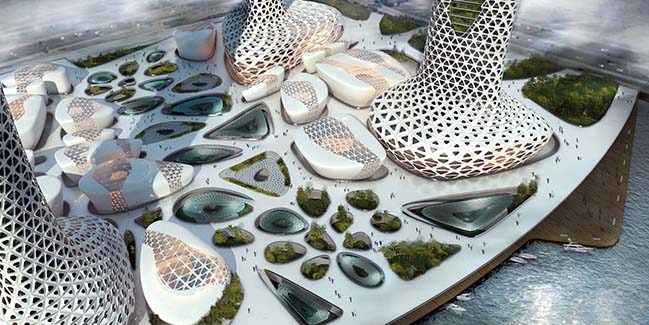
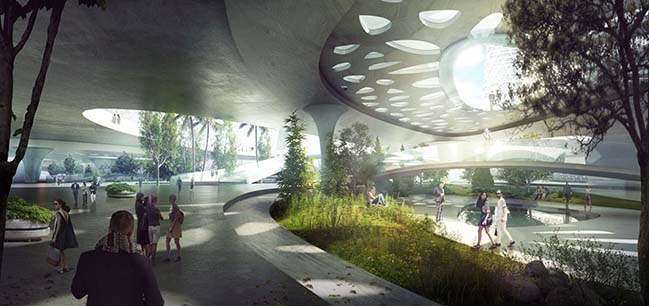

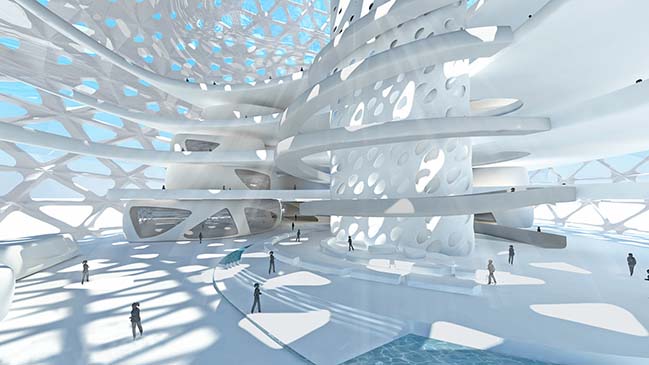
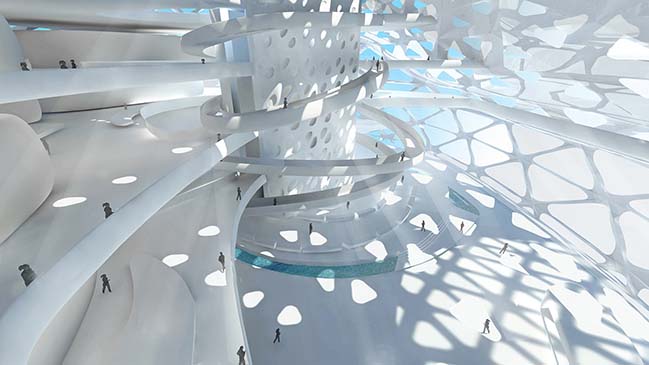
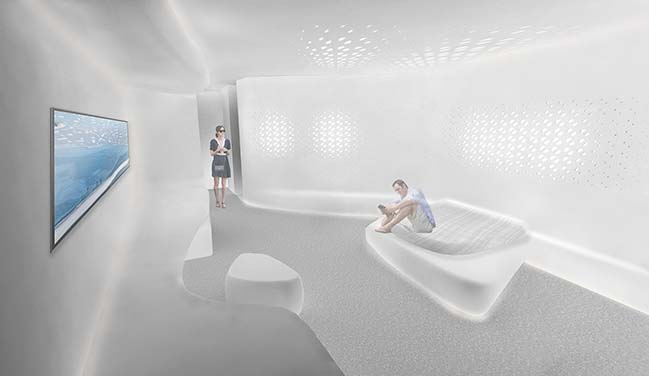
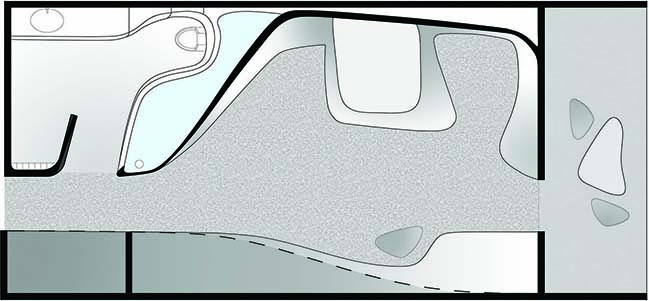
> Zaha Hadid Architects works begin on Bora Residential Tower
> The 5 Farming Bridges By Vincent Callebaut Architectures
The Symbiotic Towers by AmorphouStudio
12 / 29 / 2017 Inspired by the formation of a desert oasis and a voronoi pattern as found in natural systems, the proposal seeks to integrate contextual environmental data
You might also like:
Recommended post: Ethereal House by Brain Factory
